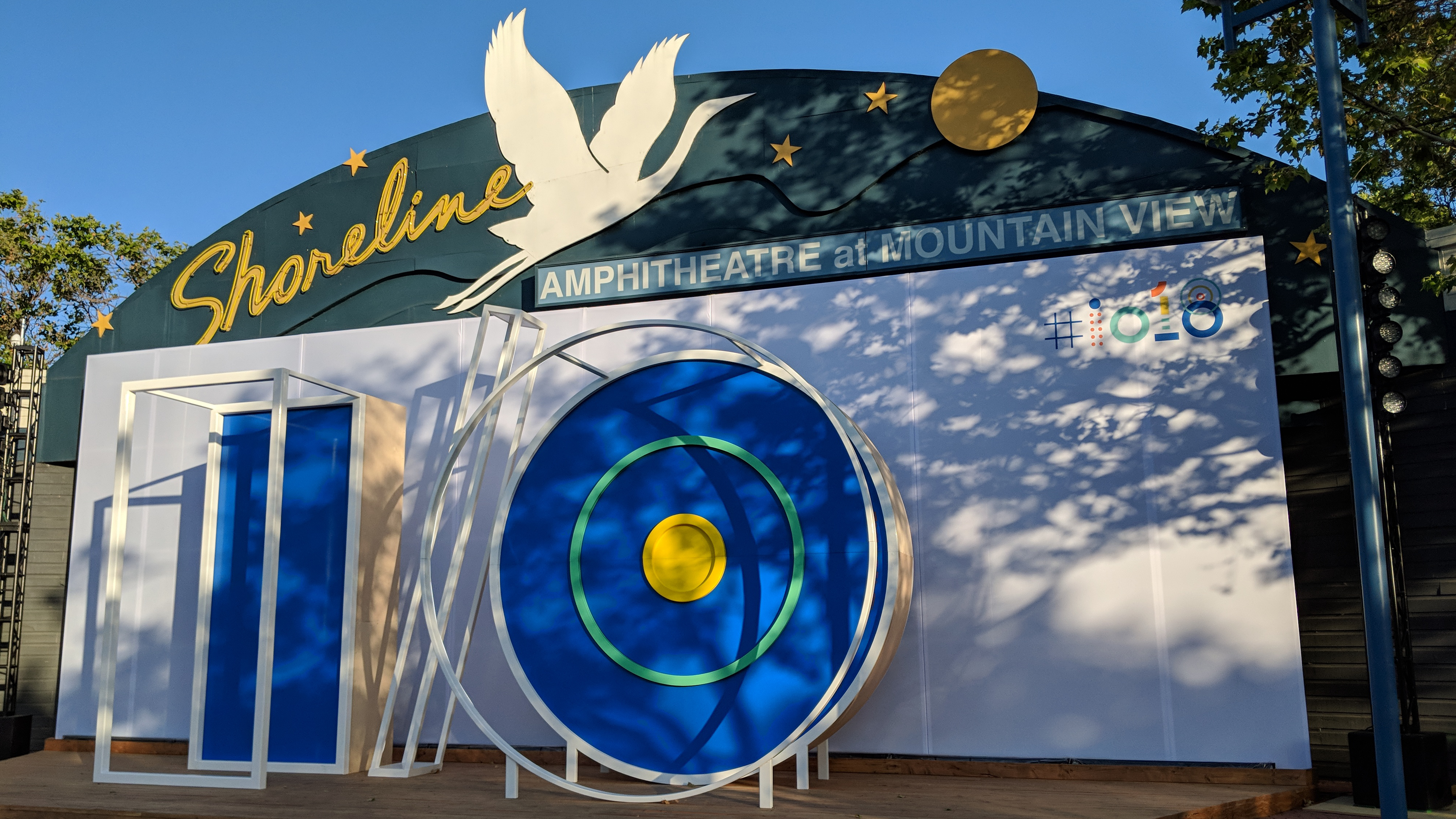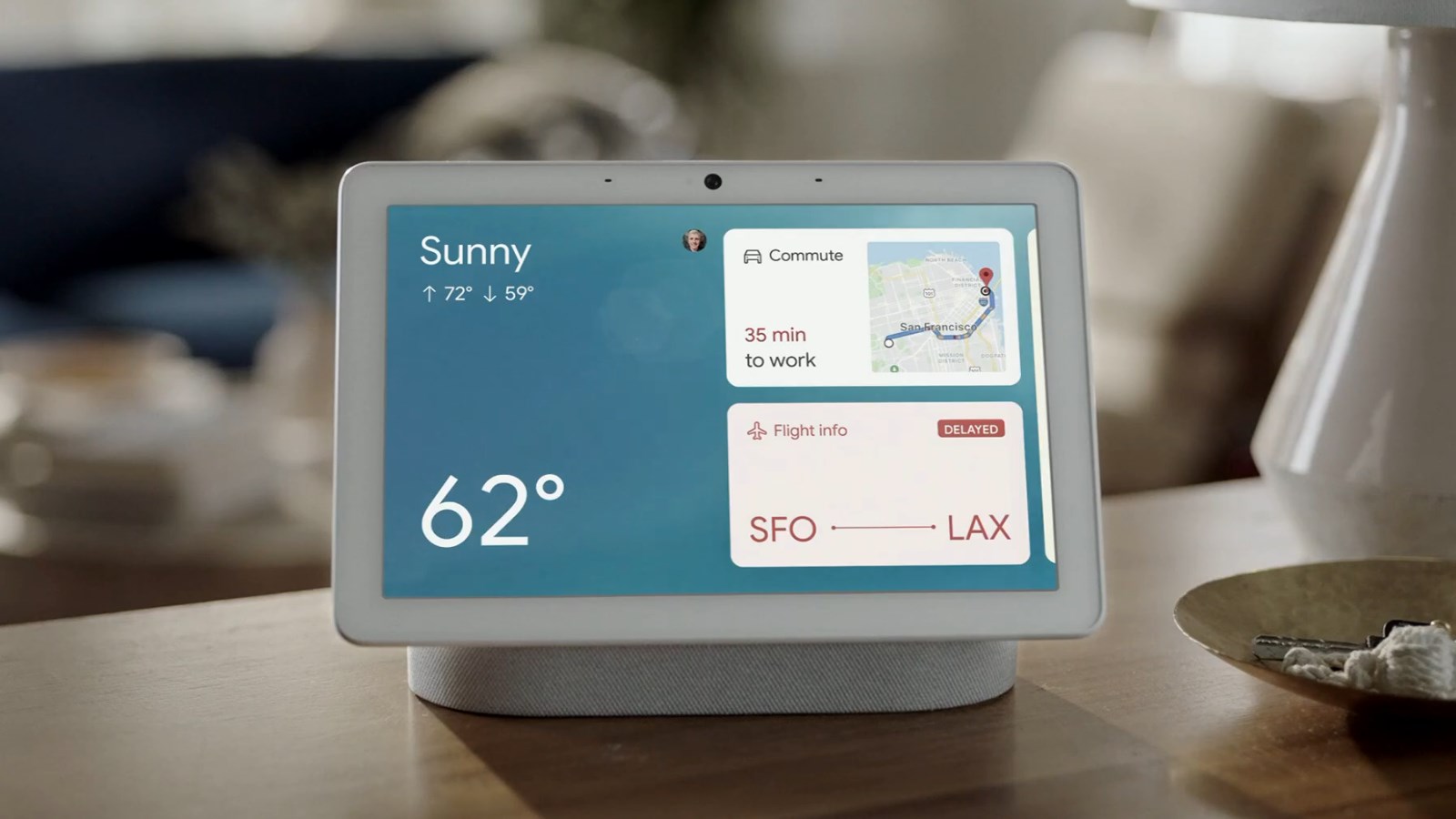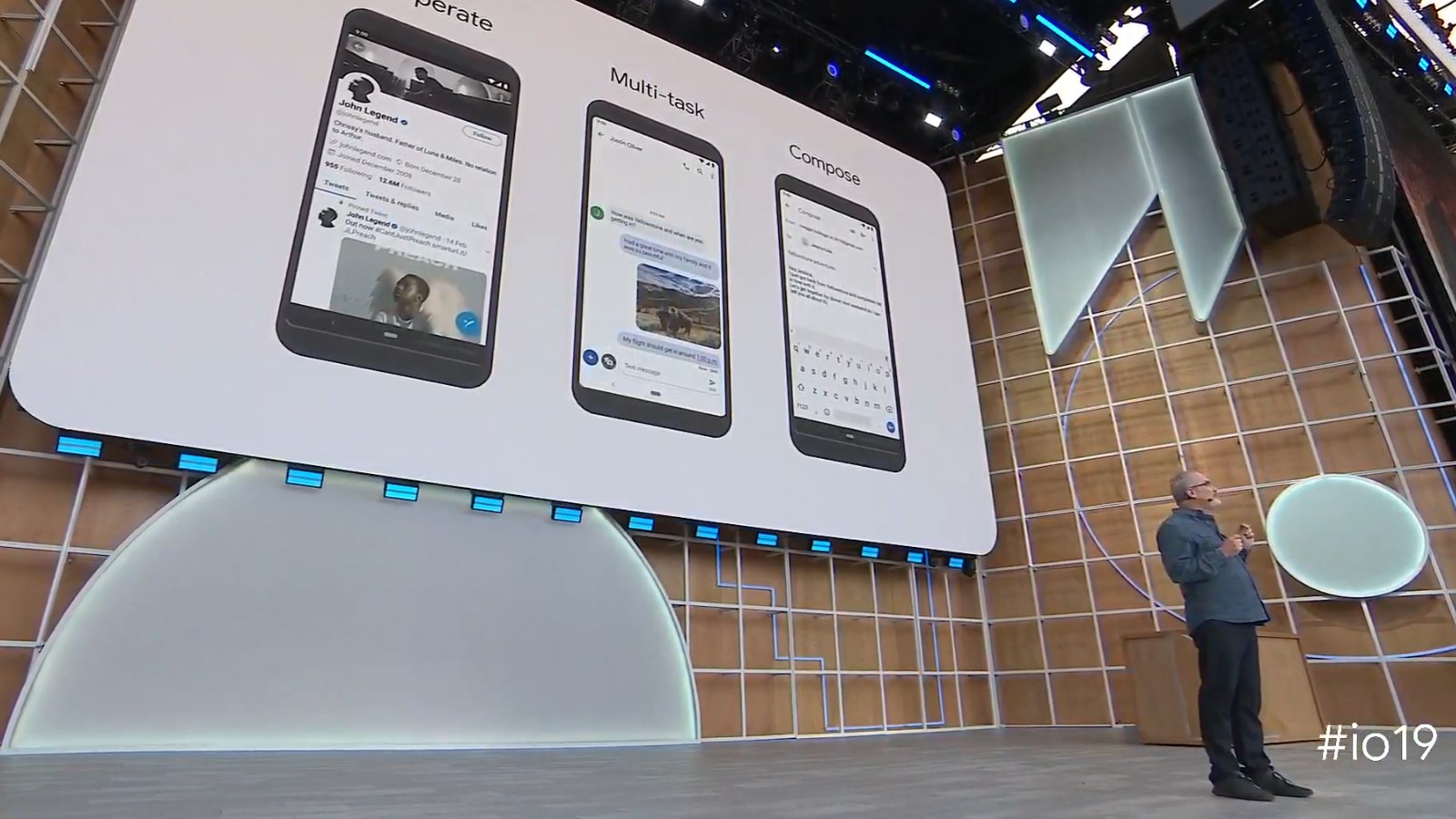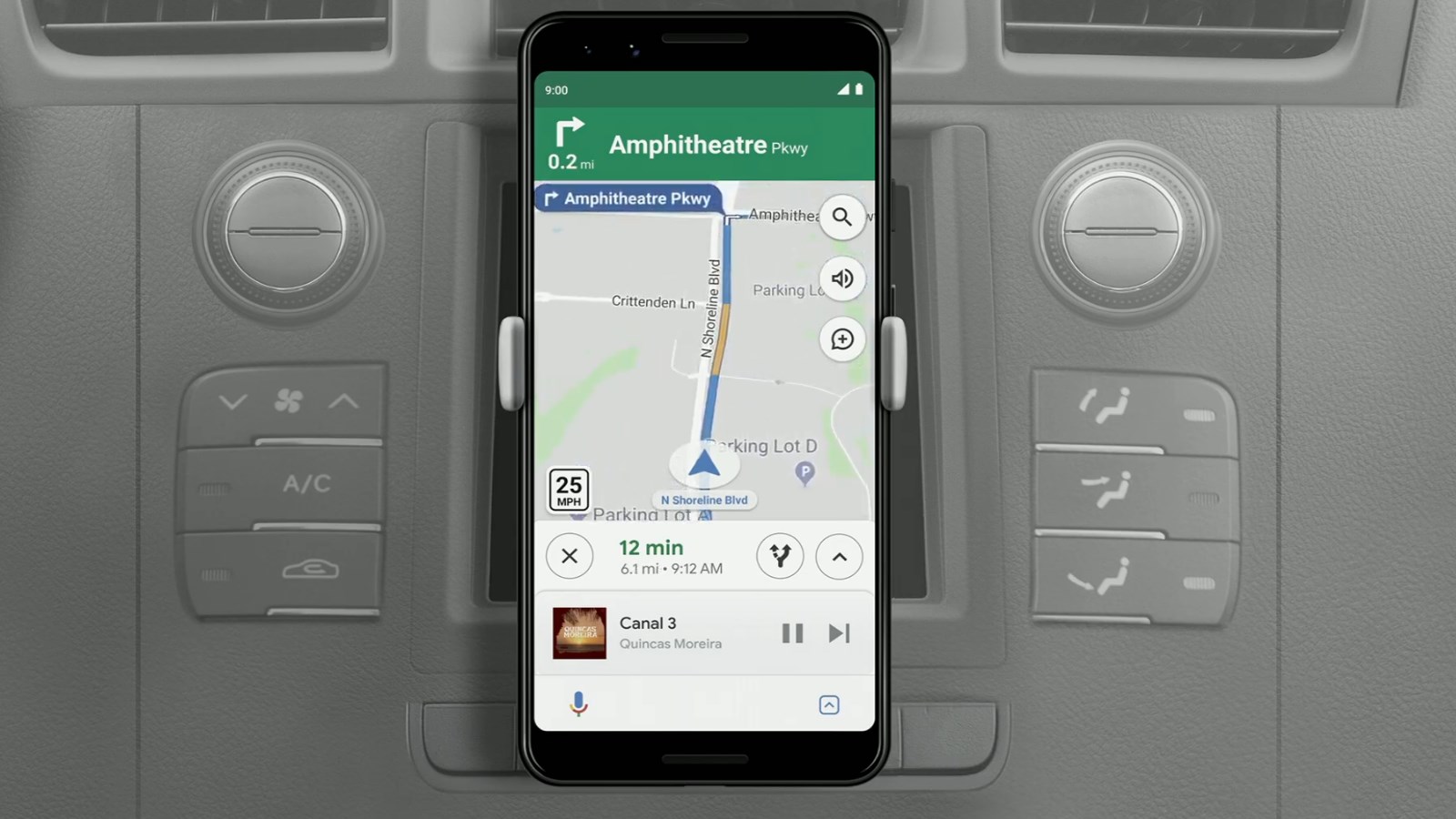Google IO 2019: recap and highlights
Wondering what happened at Google IO? Here's your guide

Sign up for breaking news, reviews, opinion, top tech deals, and more.
You are now subscribed
Your newsletter sign-up was successful
Our Google IO 2019 recap is a little more full after Day 2, complete with highlights of Android Q beta 3, a Wear OS 'Tiles' and even more Pixel 3a impressions.
The biggest interest we've seen has been to the new Pixel 3a and Pixel 3a XL, which are half the price of the Google Pixel 3, yet have the same camera specs. Sure, the chipset is slow and the build quality is plastic, but who doesn't want a good camera?
Google IO 2019 also marks the first time we've officially gone hands-on with the Nest Hub Max smart speaker with a 10-inch screen and security camera. The keynote isn't often filled with hardware announcements, but 2019 has been different.
You can install Android Q beta 3 right now, with highlights that include Dark Theme and new gesture navigation options that get rid of the back button. Sadly, we found out at Google IO that Android Beam is going away with the update.
Google Lens and Google Assistant are going to be smarter and faster – Assistant is up to 10 times faster than before, says Google. It's also going to further understand context, while still respecting your privacy, according to the company.
The Google IO 2019 recap video on YouTube is embedded below in case you couldn't make it to Google's Shoreline Amphitheatre or missed the livestream. Here's all the big news you need to be aware of.
Google IO 2019 recap video on YouTube
The Google IO keynote lasted nearly two hours and the company already has the keynote available to rewatch online via YouTube.
Sign up for breaking news, reviews, opinion, top tech deals, and more.
You can scrub through the recap video above since the livestream is over. We also have a text-based Google IO recap below, in case you can't replay the video (at work or school).
- Google's smart speakers: Home | Home Mini | Nest Hub | Home Max
- The Pixel 4 is sure to be one of the first new phones to run Android Q
- Google Stadia review: the future of gaming?

Android Q at Google IO 2019
- Android Q beta 3 launched at Google IO 2019
- 3rd party phone makers are launching Android Q beta
- Dark Theme: a new system-wide dark mode
Google IO debuted Android Q beta 3 – the 10th generation of the Android operating system, and along with it new features for phone and tablet users.
Google announced that there are over 2.5 billion active Android devices at Google IO, as the software extends to TVs, in-car nav systems and smart screens like the Nest Home Hub (renamed from the Google Home Hub). It's way more than just phones.
Two big highlights here: Dark Theme is officially coming to Android Q, we learned at the keynote. We're also going to see beta 3 on more devices: 21 including Pixel, Nokia and OnePlus phones – if you want to bite the bullet on unfinished software.
Android Q will also double down on security and privacy features, such as a Maps incognito mode, reminders for location usage and sharing (such as only when a delivery app is in use), and TLSV3 encryption for low end devices. Security updates will roll out faster too, updating over the air without a reboot needed for the device.
The future? Android Q has that covered too, helping usher in our foldables future. It'll be easier for phone makers to seamlessly tweak its UI depending on the format and ratio a folding device finds itself in. This includes games, which will adapt to take advantage of extra real estate.
Like watching your videos with the sound off, or happen to be hard of hearing? A new live captions system in Android Q will turn audio instantly into text to be read. It's a system function triggered within the volume rocker menu. They can be tweaked for legibility to your eyes, doesn't require an internet connection, and happens on videos that have never been manually close-captioned. It's at an OS level, letting it work across all your apps.
Smart Reply now works across all messaging apps in Android Q, with the OS smartly predicting your next needs.
Focus Mode is a new introduction, switching off apps you select that you know pull you away from your work, such as email. It's coming to both Android Q, and the older P version of the operating system.

Google Pixel 3a and 3a XL launch at Google IO
- Cheap Google Pixel 3a and Pixel 3a XL unveiled at Google IO
- 5.6-inch and 6-inch displays and plastic build
- Have the same great cameras as the Pixel 3 and Pixel 3XL
- Prices are affordable: $399 / AU$649 and $479 / AU$799, respectively
The rumors were true. Google Pixel 3a and Pixel 3a XL, first revealed at Google IO 2019, are indeed lower-cost versions of the Google Pixel 3 phone in two new sizes.
The have 5.6-inch and 6-inch screens at affordable prices: $399 / AU$649 and $479 / AU$799, respectively. US carriers announced include Verizon, Sprint, T-Mobile, Google Fi and US Cellular.
That's half the price of some flagships, and still keeps the same top-of-the-line main camera you'd find in the Pixel 3. It's a direct response to the iPhone XR and Samsung S10e, with Google directly calling out the iPhone X's low-light mode as a bit lacking.
Black, white and "Purple-ish" shades will be available, and there's still room in its plastic casing for a 3.5mm headphone jack. Active Edge (squeezing the phones sides) works to bring up Google Assistant. Battery life is quoted at 30 hours, with 7 hours of battery life gained from just a 15 minute charger top up.
It'll also be among the first devices to offer an AR maps mode, bringing directional markers to real-world locations through your phone's screen, camera and GPS components.
More importantly, it also means being among the very first phones to get upgraded to the new version of Android – seriously, many smartphones for a lot more money haven’t yet upgraded to Android 9 Pie yet.

Nest Hub Max debuts at Google IO 2019
- 10-inch screen like the 7-inch Google Home Hub
- Includes a wide-angle Nest Cam for security
The Google Home Hub is dead – long live the Nest Hub Max. At Google IO, the company announced it was dropping the Google Home moniker, instead rebranding its devices with the Nest name, bringing them in line with its security systems.
Crucially, the Nest Hub Max was introduced, a new product with a camera and larger 10-inch display. With a built-in Nest Cam wide-angle lens security camera (127 degrees to be exact), which the original Home Hub omitted due to privacy (and likely cost-cutting) concerns, it's now a far more security-focussed device. It also lets you make video calls using a wide range of video calling apps. Cameras and mics can be physically switched off with a slider that cuts off the electronics, for the privacy-conscious.
Voice and Face match features, allowing families to create voice and face models, will let the Hub Max know to only show an individuals information or recommendations. It'll also double up as a kitchen TV, if you've access to YouTube TV plans, and lowering the volume is as simple as raising your hand in front of the display. No more shouting over loud audio!
It shows Google is interested in releasing a more substantial home assistant and entertainment hub. It'll launch this summer for $229 in the US, and AU$349 in Australia. The original Hub also gets a price cut to $129 / AU$199.

Google Search at Google IO 2019
Google remains a search giant, and that's something it's not forgotten at Google IO 2019. However, search is about to become far more visually rich, thanks to the inclusion of AR camera trickery coming directly into search results.
Google's on-stage demonstration showed how a medical student could search for a muscle group, and be presented within mobile search results with a 3D representation of the body part. Not only could it be played with within the search results, it could be placed on the users desk to be seen at real scale from your smartphones screen. Even larger things, like an AR shark, could be put into your AR screen, straight from the app.
Google Lens bill splitting and food recommendations
Google Lens is an increasingly useful party trick in Google's App arsenal, using image recognition to deliver information based on what your camera is looking at.
At Google IO 2019, a demo showed how a combination of mapping data and image recognition will let Google Lens make recommendations from a restaurants menu, just by pointing your camera at it. When the bill arrives, point your camera at the receipt and it'll show you tipping info and bill splitting help.
Google will also be partnering with recipe providers to allow Lens to produce video tutorials when your phone is pointed at a written recipe.

Google Duplex is getting smarter
Remember Google Duplex, the slightly-creepy Google Assistant service that could make calls and bookings on your behalf based on your requests? It's getting smarter, thanks to the new 'Duplex on the web' feature.
Ask Google Assistant to plan a trip, and it'll begin filling in website forms such as reservation details, hire car bookings and more, on your behalf. It just awaits you to confirm the details it's inputted.

Next generation Google Assistant
Google has been working hard to compress and streamline the AI that Google Assistant taps into from the cloud when it is processing your voice commands. Every voice request has currently to be run through three separate processing models to land on what's (hopefully) your correctly-understood voice command. It is data that until now has taken up 100GB of storage on Google's many servers.
But that's about to change. Google has figured out how to shrink that down to just 500MB of storage space, and to put it on your device, lowering latency between your voice request and the task you've wished to trigger being carried out. It's 10x faster - 'real time', according to Google spokespeople. Google's demo showed a Google employee making several requests in a row, instantly having them triggered.

Google Assistant impressively can now compose emails in an almost mind-reading way – it'll know when you're asking it to put text in the body of a message or the subject line, without it needing specific prompts.
It'll also be getting a driving mode, putting suggestions and non-distracting use cases front and centre to be safely used (and navigated) by voice in the car. It'll let you do everything from taking a call to changing music without leaving the mapping screen.
Oh, and alarms and timers? Just say 'Stop' to silence them, from this day forward. No need to say "OK Google". Phew!
Speech substitution
The events list for Google IO 2019 mentions Project Euphoria, which aims to leverage "Google technologies to give people with speech impairments their voice back." This proved to be a new software suite and features coming to Android, powered by machine learning.
As we pointed out when the news hit, there’s no guarantee that Project Euphoria will go live anytime soon – it could just be introduced as a feature coming in the future, as Google is want to do.

What wasn't at Google IO 2019
Google IO 2019 was brimming with hardware and software announcements, but it wasn't the stage to make news on everything you're excited about in 2019.
Specifically, we didn't see a Google Pixel Watch just yet. There have been no leaks and few rumors about the smartwatch, so that was to be expected.
As for the Pixel 4, it's too soon for the next version of Google's flagship phone, especially with the budget-orientated announcements. It's likely working hard on its next-level camera, and that should be ready in October.
Finally, there were no new Google laptops or tablets. Reps for the company have suggested that Google hasn't vacated the space for either category, though, so if you're holding out, there's still hope.
- We're expecting a lot of Android news out of Google IO 2019, and here are the best Android phones that will get those new features

David is now a mobile reporter at Cnet. Formerly Mobile Editor, US for TechRadar, he covered phones, tablets, and wearables. He still thinks the iPhone 4 is the best-looking smartphone ever made. He's most interested in technology, gaming and culture – and where they overlap and change our lives. His current beat explores how our on-the-go existence is affected by new gadgets, carrier coverage expansions, and corporate strategy shifts.